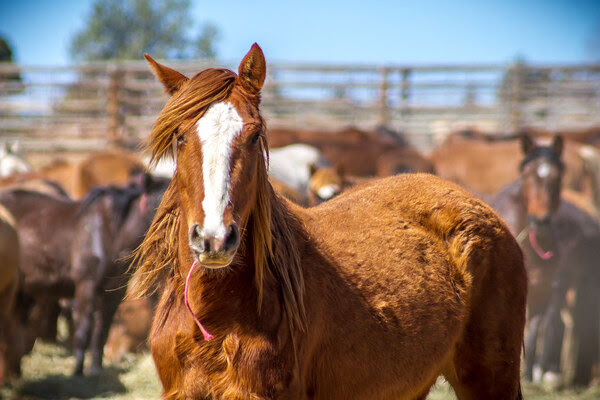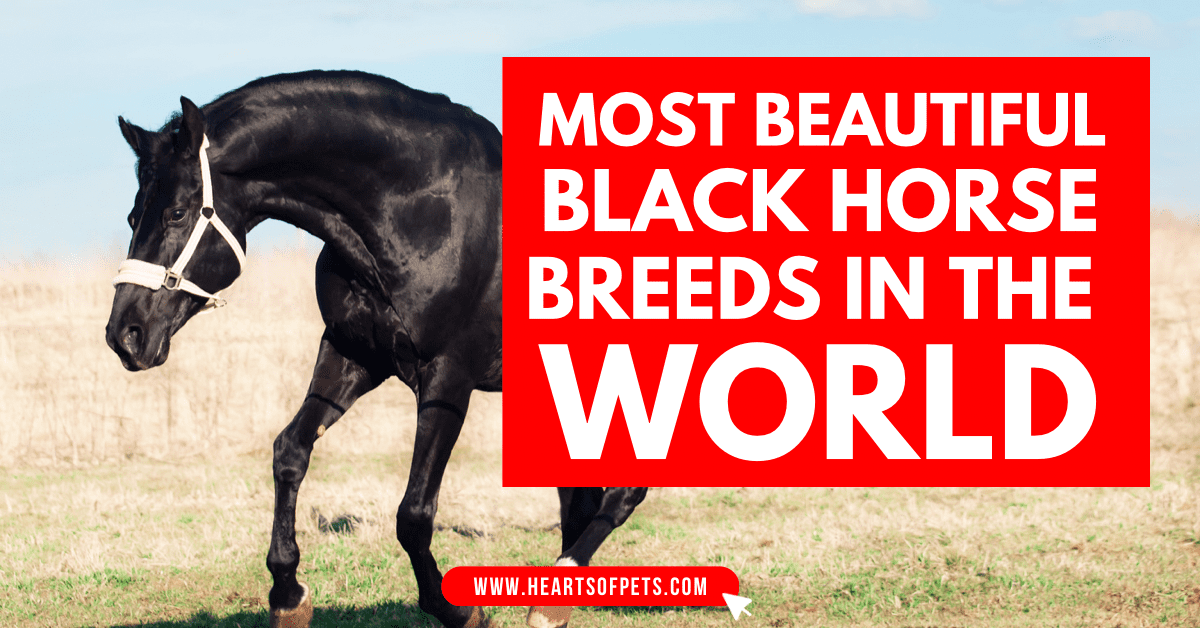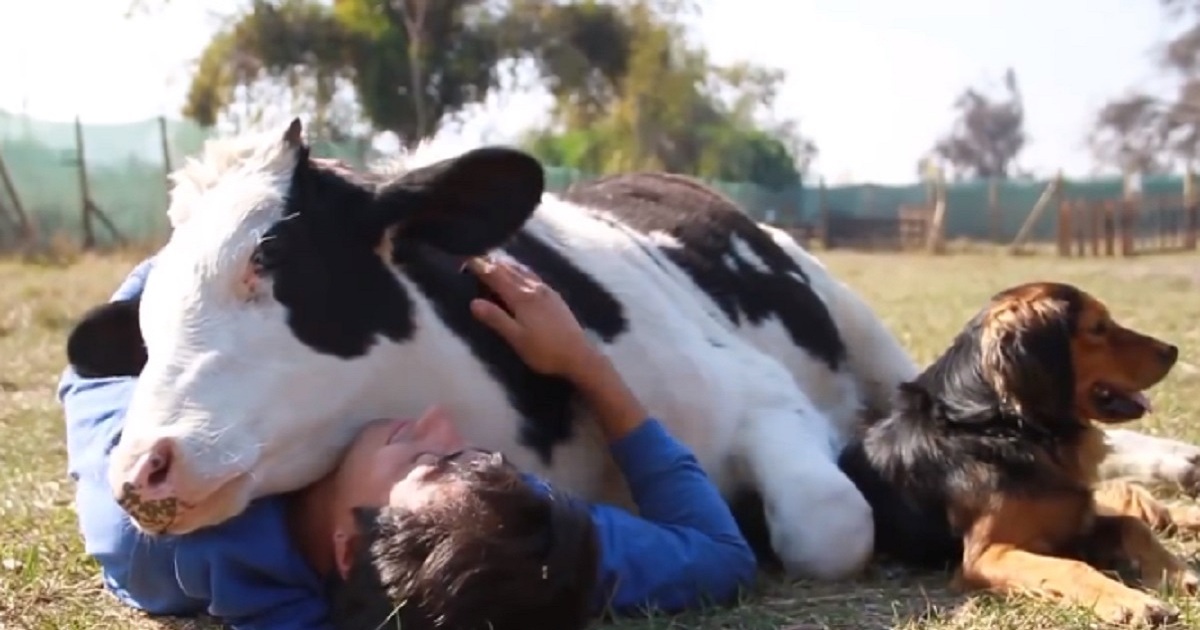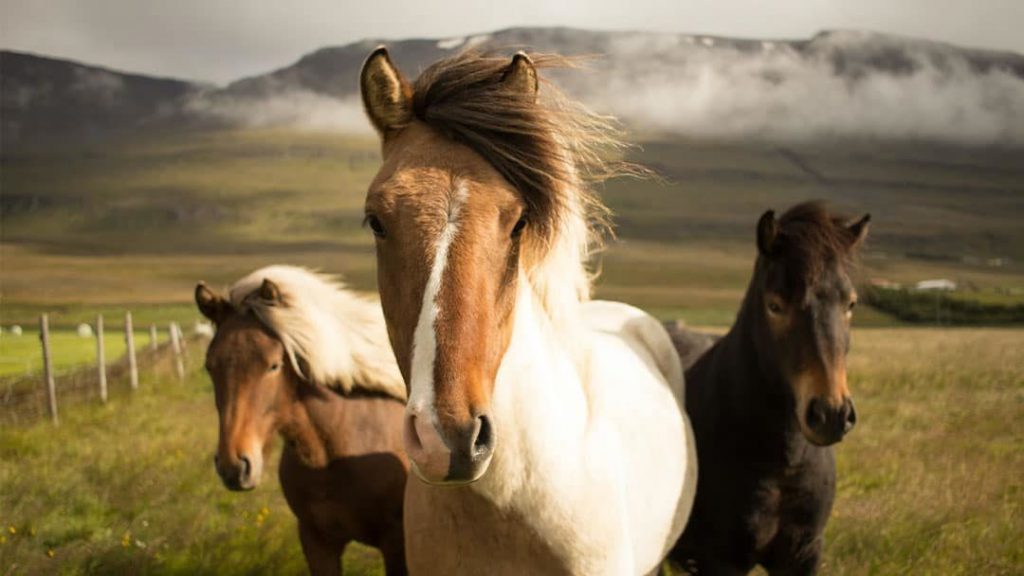
There may be a range of responses when the question “how long do horses live for” is posed. Although there may be some circumstances that cause some breeds of horses to live longer or shorter lives than others, the majority of horse breeds will live for at least 25 to 30 years.
We offer a guide on the average lifespan of horses. We cover a variety of breeds, including Draft and Clydesdales, Paints, Icelandics, and Warmbloods, as well as information on the causes of some horses’ extended lifespans. We have also provided some guidance on how the typical horse ages (being able to tell how old your horse is).
The Typical Lifespan of a Horse
A horse life expectancy can differ for a variety of reasons, the most of which are connected to the animal’s surroundings, the level of care given to it, and the breed. Horses and ponies can now live far longer than they might have in the past because to technological developments and advances in veterinary medicine, with many living to prime old ages in horse years. In human years, this is even comparable to a reasonably long life.
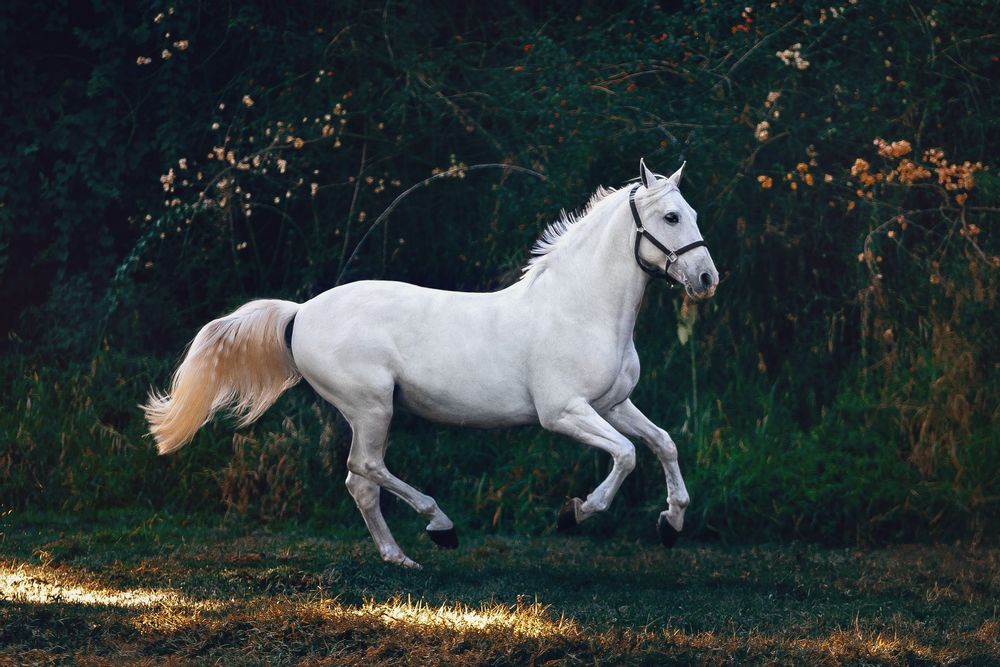
Horse Life Span in Comparison to Human Life Span
Since horses age differently from people, an equine year is computed differently from a typical human year. The age of the animal must be taken into account, thus the calculation is also not simple.
The first two years of a horse are equated to 6.5 years in humans. As a result, when the horse reaches the age of two, it will be 13 years old in human years. A horse year will be equal to 5 human years when it is 2 to 3 years old.
After three years, the rate will begin to decline once more. With about 2.5 horse years passing for every human year, it is still faster than you would anticipate a human to age.
The horse will then continue to age at this rate for the remainder of its life, with a horse that is around 40 years old in human years being equivalent to about 110 years in horse years.
How Much Longer Does a Domestic Horse Live Compared to a Wild Horse?
It has been discovered that domestic horse breeds, such as Warmbloods, Miniatures, and racehorses, typically live longer than horses that roam freely. This is due to the fact that they are less likely to be vulnerable to bacterial and viral illnesses (which veterinary medications may treat) and to be targeted by predators. Domestic horses will also receive regular access to the healthiest diet as well as general care and attention.
A wild horse will often live for 15 to 16 years.
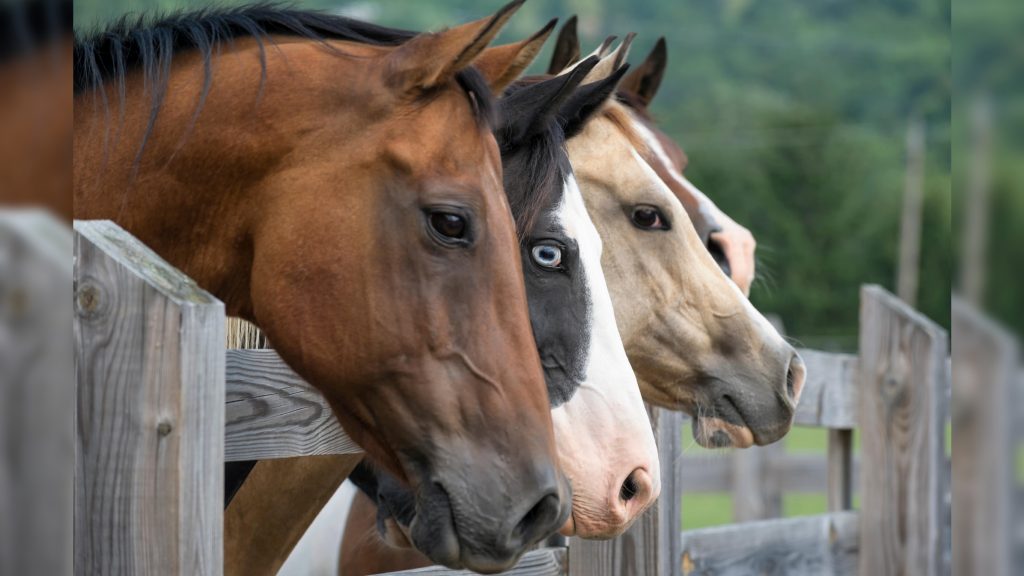
How Long Do Common Horse Breeds Live on Average?
The following is a list of some of the most popular horse breeds’ typical lifespans:
- American Cream Draft: 20-25 years
- American Paint Horse: 30+ years
- American Quarter Horse: 20-30+ years
- American Saddlebred: 30-35 years
- American Standardbred: 30-35+ years
- Andalusian: 20-25 years
- Appaloosa: 26-30+ years
- Arabian: 18-30 years
- Ardennes: 25-30 years
- Belgian Draft: 18-30 years
- Cleveland Bay: 40+ years
- Clydesdale: 20-25 years
- Connemara: 20-25 years
- Criollo: 20-35 years
- Dutch Warmblood: 24-29 years
- Exmoor Pony: 30+ years
- Falabella: 16-20 years
- Friesian (also called Belgian Black): 16-18 years (this is considered an issue of selective breeding of Friesian horses)
- Gypsy Vanner (also called the Gypsy Horse, Irish Cob, or Traditional Gypsy Cob): 25-30+ years
- Hackney: 25-30 years
- Haflinger: 30-35 years
- Hanoverian: 25-30 years
- Highland: 25-30 years
- Icelandic: 25-30 years
- Irish Sport Horse: 25-30 years
- Lipizzaner: 20-30 years
- Morgan: 25-30 years
- Mustang: 15-25 years
- Norwegian Fjord: 20-35 years
- Oldenburg: 25-28 years
- Orlov Trotter: 25-30 years
- Paso Fino: 28-33 years
- Percheron: 25-35 years
- Shetland Pony: 30-40 years
- Shire: 35-45 years
- Suffolk: 25-30 years
- Tennessee Walker: 25-30+ years
- Thoroughbred: 30-35+ years
- Trakehner: 30-35+ years
- Walkaloosa: 30-35+ years
- Welsh Cob: 35+ years
- Welsh Pony: 35+ years
Although this list can be used as a general reference, we wouldn’t expect you to use it as a standard pattern for your horse’s longevity. In contrast to Icelandic, American Quarter, and Arabian horses, your own Haflinger horse may be expected to live a similar amount of time to an Appaloosa, Thoroughbred, or Paint Horse, however this may not always be the case.
Many horses and ponies will even live longer than the expanded lifespans made possible by advancements in medical technology. For instance, Old Billy, an Irish Cob, was the oldest horse ever recorded. He is said to have been born in 1760 and to have lived until 1822, making him 62 years old at the time of his death. This is true despite the breed’s typical lifespan being only half as long.
How a Horse’s Lifespan is Determined by Size and Breed
The expected lifespan of horses tends to be shorter the larger they get, as is typical for many animals. Weight and height are also taken into consideration in this. For instance, due to their finer structure, Arabian horses are more likely to live longer than breeds like American Quarters. Due to their height, Norweigian Fjords are more likely than Shires to live longer lives.
Some breeds, like the Friesian, have also undergone years of finely selective breeding, which has led to a shortened lifetime.
A horse’s breed will help to define its size and weight, which may affect the animal’s lifetime in general but may also affect the type of life the horse will lead and the level of exhaustion they may experience. For example, it’s more common for Arabian horses to be shown or trained for endurance competition. American Quarter horses are bred for work on farms and cattle drives as well as for rodeo and shows.
Additionally, different horse breeds will require different nourishment, and even if two horses of the same breed are doing the same type of activity, their nutritional needs may change. The horse’s health may also be affected by how soon it was weaned, as doing so may cause the horse to lose important nutrients during their peak growth years.
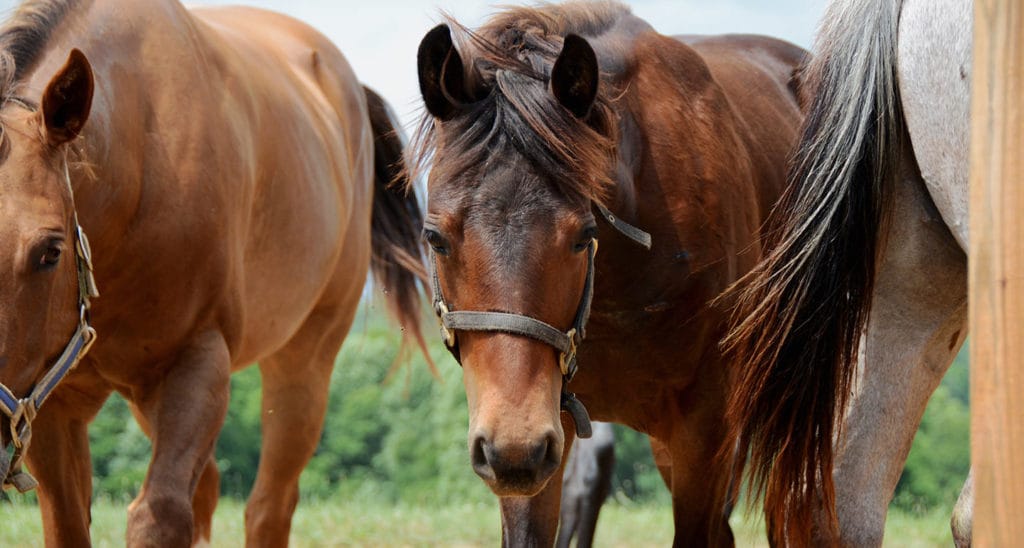
How to Determine a Horse’s Age
Looking at a horse’s teeth is the most typical approach to determine its age. But this can only offer you a general idea, and it might not always be correct, particularly as the horse reaches an advanced age. If your horse has undergone multiple owners and lacks any kind of identification, it might not be entirely possible to age it accurately.
It’s possible to spot grey hair around an aging horse’s eyes and muzzle in specific circumstances. Additionally, horses may experience age-related illnesses including arthritis.
How to Maintain a Healthy Horse
We know that keeping your horse as healthy as possible will always be your top responsibility in order to ensure their ability to live long, fulfilling lives. You’ll be able to spend as much time with them while doing this as well. Whether you own an Appaloosa, a Thoroughbred, or a Clydesdale, this is almost probably doable with proper care and the necessary upkeep.
Horses that receive the proper nourishment, a balanced schedule of labor and play, and all the love and care a parent can muster are more likely to live longer lives and reach the higher ages that certain animals have been known to reach.
FREQUENTLY ASKED QUESTIONS (FAQS)
What is the longest life of a horse?
Old Billy, a horse raised by Edward Robinson in Woolston, Lancashire, UK, and foaled in 1760, has the longest age reliably recorded for a horse at 62 years.
Can a horse live to 40 years old?
A domestic horse often lives 20 to 30 years. Many horses perform far better than this average. Ponies typically live longer, and many of them continue to teach well beyond their 30s. Some horses and ponies may even live to be 40 years old or older.
Can you ride a 26 year old horse?
Your horse can be retired at any age. Some horses must be retired early due to illnesses or physical issues. Other horses can be ridden safely far into their old age. Most horses should typically stop being ridden between the ages of 20 and 25.

